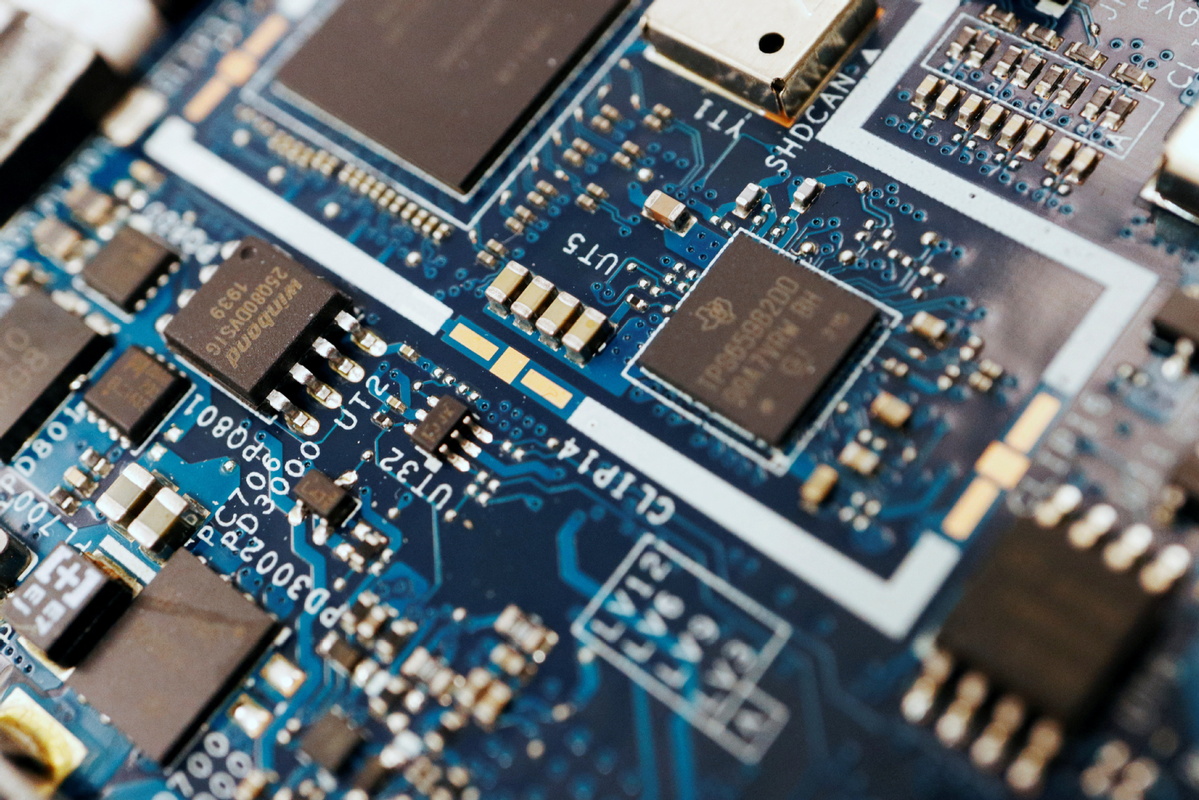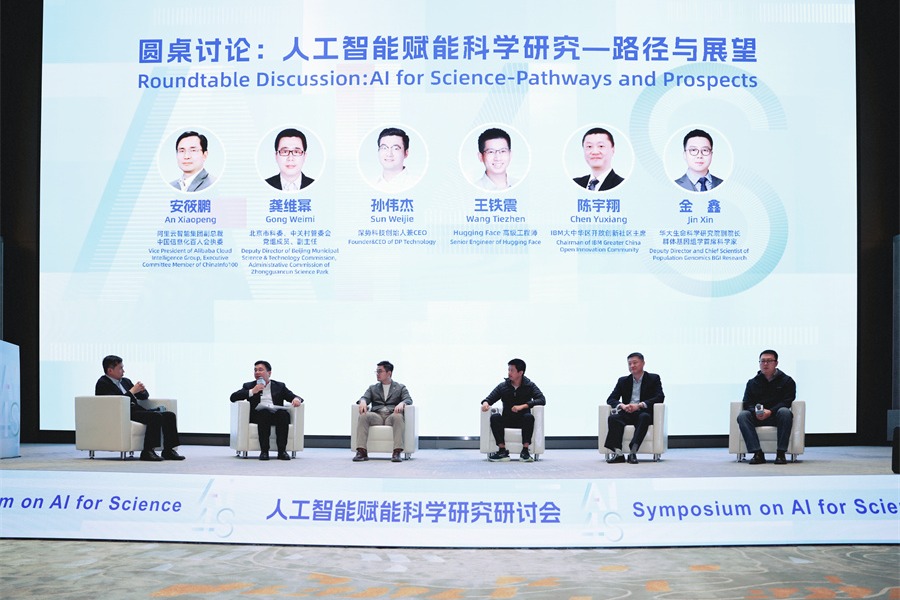Tighter US chip curbs prompting concerns
Rules:?Normal economic, trade cooperation disrupted


The United States government's latest tightening of restrictions on chip exports to China once again highlights that Washington is using political power to disrupt normal commercial cooperation, and this would deal another heavy blow to the global semiconductor industry, said experts and company executives.
They noted that such restrictions will push Chinese companies to devote more resources to research and development, in order to achieve breakthroughs in key components and establish a beachhead in more future-oriented strategic technologies.
The comments came as the US' latest revised rules, which run to 166 pages, are set to go into effect on Thursday.
These tighter curbs will make it harder for China to gain access to US artificial intelligence chips and chipmaking tool markets. Washington expanded the restrictions to laptops containing those AI chips, Reuters reported.
Wei Jianguo, former vice-minister of commerce, said, "Despite Washington's shift in rhetoric from decoupling to de-risking in key supply chains, the US government continues to tighten its controls over chip exports to China."
"The move is the latest evidence that to contain China's technological rise, the US government is leveraging all means, regardless of how much pain it will cause US companies," Wei said.
China's Ministry of Commerce said on Sunday that the latest revision of semiconductor export controls came less than six months after the US introduced the rule in October 2023.
The broadening of the so-called national security concept by the US, coupled with arbitrary rule changes and tightened control measures, not only creates more obstacles to normal economic and trade cooperation between China and the US but also imposes heavier compliance costs for global enterprises, the ministry added.
The latest tightened chip export restrictions have been introduced even though major US semiconductor companies are working hard to cement ties with China, which is the world's largest semiconductor market.
Contrary to Washington's business-disruptive move, business communities in the US still regard China as a pivotal part of their global business landscape. For instance, the CEOs of US semiconductor companies such as Qualcomm, Micron and AMD visited China to attend the China Development Forum in Beijing, highlighting their long-term commitment to the Chinese market.
Cristiano Amon, president and CEO of Qualcomm, said that over the past 30 years, the company has established strong, trusting and mutually beneficial relationships with its Chinese partners. Nowadays, as its technology expands into numerous new industries, Qualcomm is constantly establishing new partnerships in China.
Meanwhile, Micron Technology broke ground at its new plant in Xi'an, Shaanxi province, on Wednesday, as part of its 4.3 billion yuan ($595 million) investment plan announced in June 2023.
Manish Bhatia, executive vice-president of global operations at Micron, said: "China is a critical part of our global business. We are focused on being able to support that business."
Bai Ming, a researcher at the Beijing-based Chinese Academy of International Trade and Economic Cooperation, said that despite the political noises from the US government, US companies are trying their best to expand their presence in China, as "the market is too big for anyone to ignore".
The Chinese mainland consumes more than half of the world's semiconductors, which are then assembled into tech products to be re-exported or sold in the domestic market, according to research firm Daxue Consulting.
Xiang Ligang, director-general of the Information Consumption Alliance, a telecommunications industry association in China, said the US chip restrictions will accelerate Chinese companies' efforts to achieve technological breakthroughs.
For instance, Huawei's AI processors became highly sought-after products in China after restrictions were imposed on the export to China of US company Nvidia's most advanced AI chips, Xiang said.
Meanwhile, Chinese companies are scrambling to pioneer the R&D of frontier technologies such as 5.5G, a crucial upgrade of the 5G network in functionality and coverage, which will give new vitality to China's tech growth, experts added.
For instance, 5.5G can support a downlink speed of 10 gigabits per second, compared with the current 5G speed of 1 Gbps.
China Mobile, the world's largest telecom carrier in terms of mobile subscribers, last week became the world's first company to start deploying 5.5G commercial networks. It aims to cover more than 300 Chinese cities with 5.5G by the end of this year, which would make its scale the largest in the world.




































